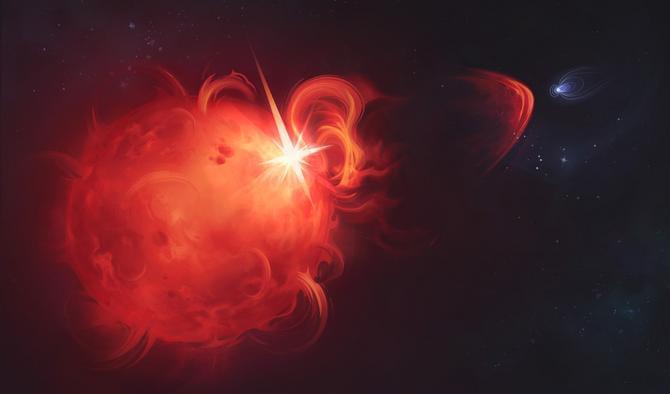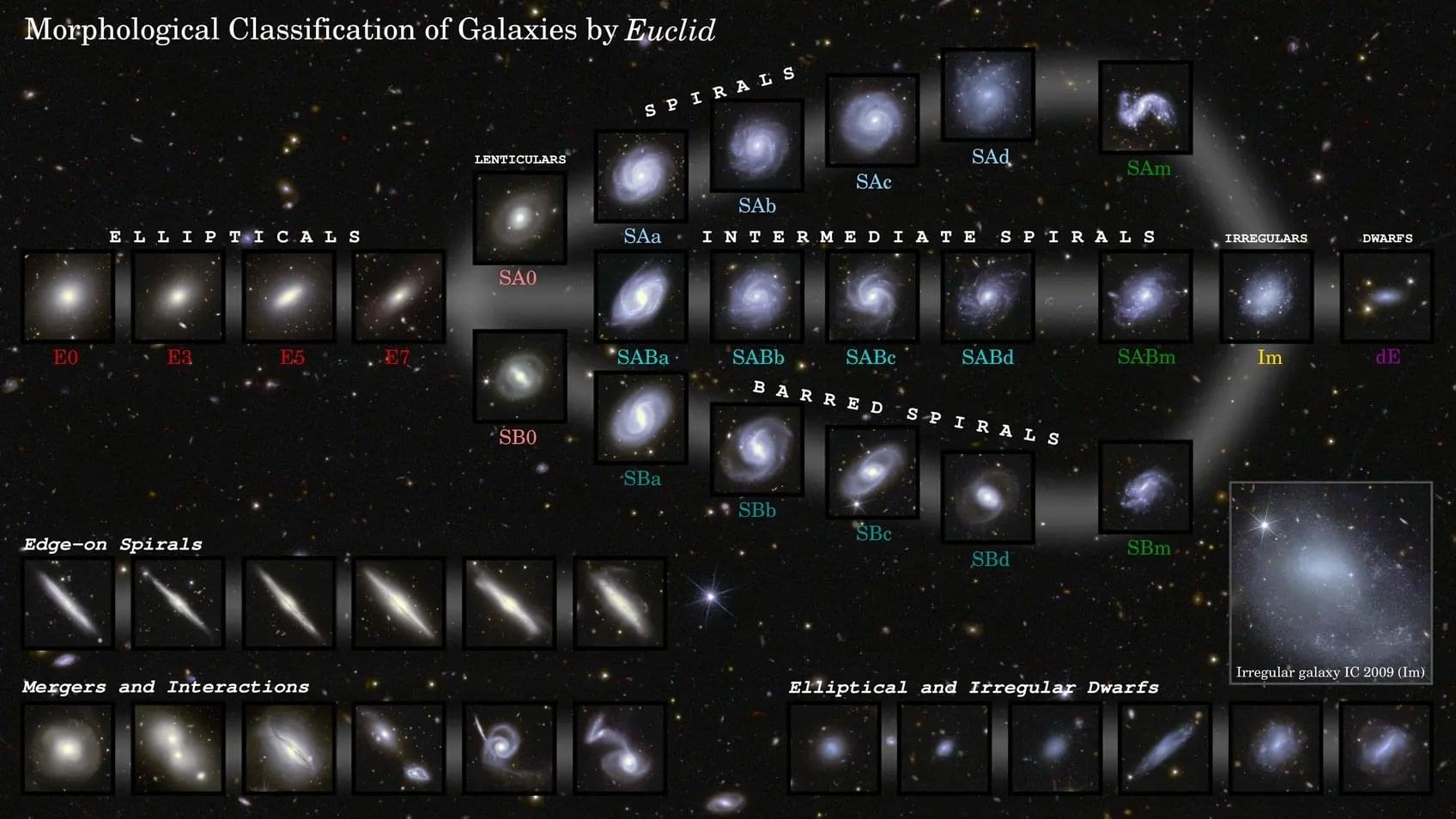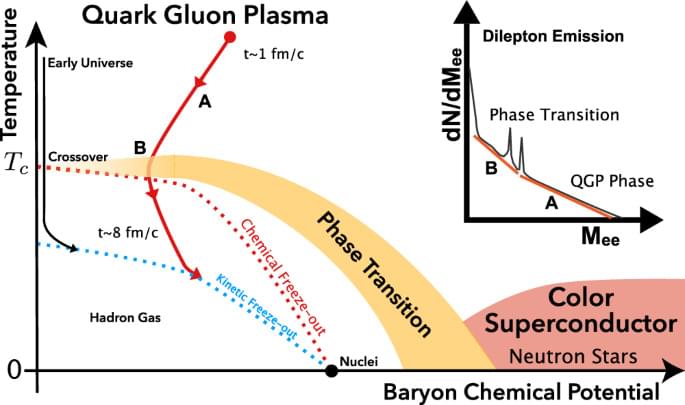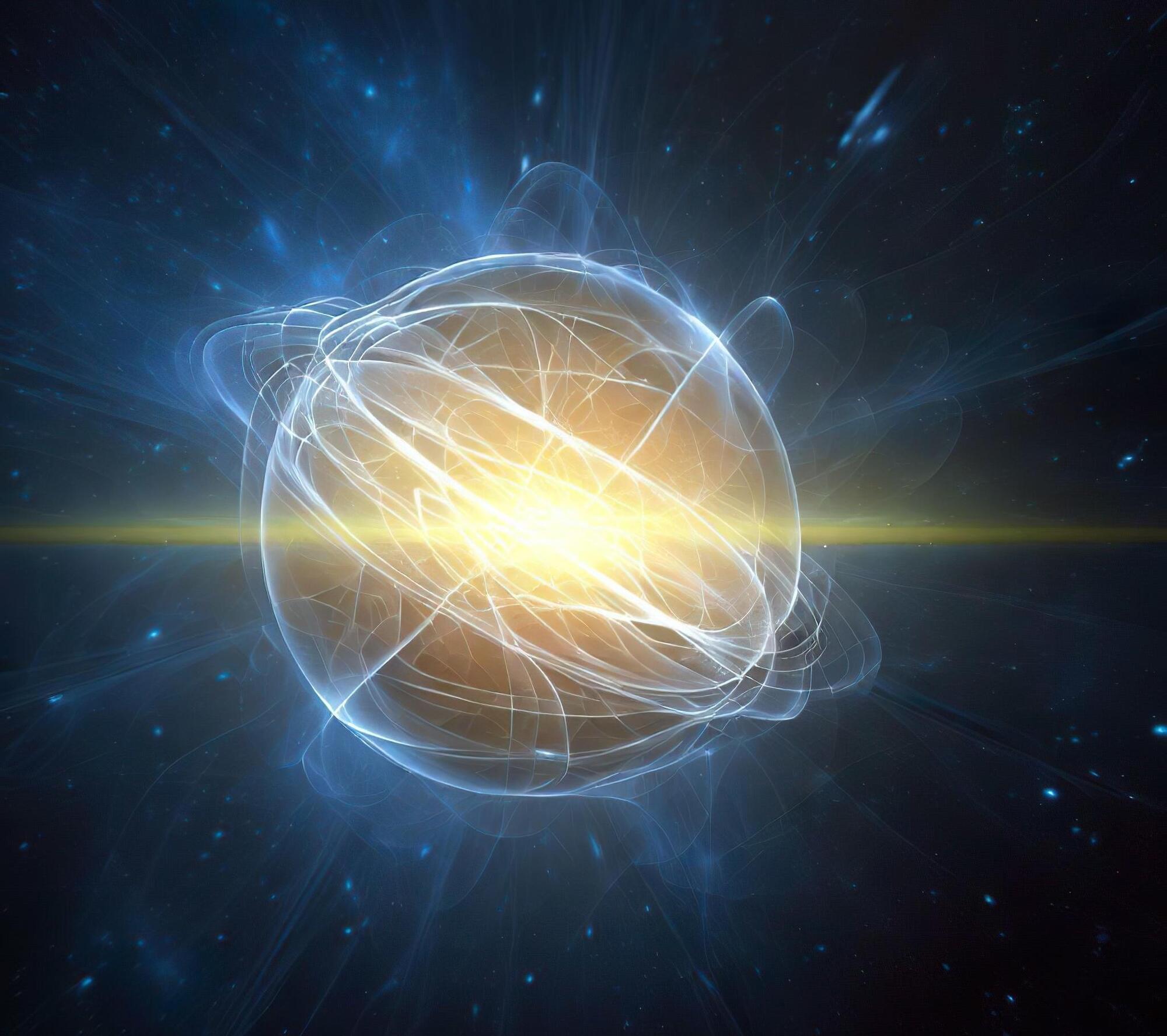What can coronal mass ejections (CMEs) on other stars teach astronomers about stellar formation and evolution? This is what a recent study published in Nat | Space



A joint research team from the Institute of Geochemistry of the Chinese Academy of Sciences (IGCAS) and Shandong University has for the first time identified crystalline hematite (α-Fe2O3) and maghemite (γ-Fe2O3) formed by a major impact event in lunar soil samples retrieved by China’s Chang’e-6 mission from the South Pole–Aitken (SPA) Basin. This finding, published in Science Advances on November 14, provides direct sample-based evidence of highly oxidized materials on the lunar surface.
Redox reactions are a fundamental component of planetary formation and evolution. Nevertheless, scientific studies have shown that neither the oxygen fugacity of the lunar interior nor the lunar surface environment favors oxidation. Consistent with this, multivalent iron on the moon primarily exists in its ferrous (Fe2+) and metallic (Fe0) states, suggesting an overall reduced state. However, with further lunar exploration, recent orbital remote sensing studies using visible-near-infrared spectroscopy have suggested the widespread presence of hematite in the moon’s high-latitude regions.
Furthermore, earlier research on Chang’e-5 samples first revealed impact-generated sub-micron magnetite (Fe3O4) and evidence of Fe3+ in impact glasses. These results indicate that localized oxidizing environments on the moon existed during lunar surface modification processes driven by external impacts.

The rich in the U.S. just keep getting richer. Over the five decades, incomes have risen materially faster at the very top than anywhere below, and similarly, wealth has accumulated much more quickly at the top than anywhere below. A report from the Stone Center On Socio-Economic Inequality (at CUNY) looks at the mutually-reinforcing relationship between these two dynamics…
Homoploutia describes the situation in which the same people (homo) are wealthy (ploutia) in the space of capital and labor income in some countries. It can be quantified by the share of capital income rich who are also labor income rich. In this paper, we combine several datasets covering different time periods to document the evolution of homoploutia in the United States from 1950 to 2020. We find that homoploutia was low after World War II, has increased by the early 1960s, and then decreased until the mid-1980s. Since 1985 it has been sharply increasing: In 1985, about 17% of adults in the top decile of capital income earners were also in the top decile of labor-income earners. In 2018 this indicator was about 30%. This makes the traditional division between capitalists and laborers less relevant today. It makes periods characterized by high interpersonal inequality, high capital-income ratio, and high capital share of income in the past fundamentally different from the current situation. High homoploutia has far-reaching implications for social mobility and equality of opportunity. We also study how homoploutia is related to total income inequality. We find that rising homoploutia accounts for about 20% of the increase in total income inequality in the United States since 1986…
Note that the report was written in the 2020 (and published in The Review of Income and Wealth in 2023). The dynamic has continued since; the polarizing impact has grown.

Researchers from the Department of Molecular Physics at the Fritz Haber Institute have demonstrated the first magneto-optical trap of a stable “closed-shell” molecule: aluminum monofluoride (AlF). They were able to cool AlF with lasers and selectively trap it in three different rotational quantum levels—breaking new ground in ultracold physics.
Their experiments open the door to advanced precision spectroscopy and quantum simulation with AlF. The work has been accepted for publication in Physical Review Letters and is currently available on the arXiv preprint server.
Cooling matter to temperatures near absolute zero (0 K, −273.15°C) acts like a microscope for quantum mechanical behavior, bringing physics that is normally blurred out into sharp focus. Classic historical examples include the 1911 discovery of superconductivity in mercury metal cooled near 4 K, and anomalous thermal behavior in molecular hydrogen due to its “ortho” and “para” spin states. These phenomena confounded classical physics theories of the time, driving both the evolution of quantum mechanics, as well as efforts to reach ever lower temperatures.


This is the conclusion of an international team of researchers, who found that this nervous system has a genetic organization resembling that of the brain of vertebrates, like humans.
“Our results show that animals without a conventional central nervous system can still develop a brainlike organization,” said paper author and biologist Jack Ullrich-Lüter of the Natural History Museum, Berlin, in a statement.
He added: “This fundamentally changes how we think about the evolution of complex nervous systems.”

In a recent study, physicists have created the clearest and most detailed view so far of how neutrinos shift their “flavor” as they move through space.
Neutrinos are among the universe’s basic building blocks, yet they remain some of the hardest particles to study. They pass effortlessly through matter, making them nearly impossible to detect. Although much about them is still unknown, scientists have identified three distinct kinds of neutrinos: electron, muon, and tau.
Understanding these different identities can help scientists learn more about neutrino masses and answer key questions about the evolution of the universe, including why matter came to dominate over antimatter in the early universe, said Zoya Vallari, an assistant professor of physics at The Ohio State University.

“This is strong evidence that as stars evolve off their main sequence they can quickly cause planets to spiral into them and be destroyed,” said Dr. Edward Bryant.
What happens to planets as their stars age and come closer to death? This is what a recent study published in the Monthly Notices of the Royal Astronomical Society hopes to address as a team of researchers investigated the interaction between stars near the end of their lifetimes and their exoplanets with short-period orbits. This study has the potential to help scientists better understand the evolution of stars and what this could mean for our Sun near the end of its lifetime.
For the study, the researchers analyzed data obtained from NASA’s Transiting Exoplanet Survey Satellite (TESS) mission for short-period exoplanets orbiting post-main-sequence stars, which are stars approximately the size of our Sun which have exhausted their hydrogen and have ballooned into red giants. Additionally, these short-period exoplanets have orbits that last mere days.
The goal of the study was to ascertain the influence of these red giants on their planetary populations, with the researchers settling on 130 exoplanets after careful data analysis. In the end, the researchers found that only 0.28 percent of older post-main sequence stars had giant exoplanets, with 0.35 percent of younger post-main-sequence stars having giant exoplanets. Finally, the researchers found only 0.11 percent of the oldest post-main-sequence stars had exoplanets.
What happens when the pursuit of perfection forgets compassion?
SCP-191, known as The Cyborg Child, is one of the most haunting examples of speculative bioengineering ever documented. This essay examines the anatomy, psychology, and philosophy of a child transformed into a machine — a being caught between humanity and technology.
In this episode, we explore:
How cybernetic modification redefines the human body.
The science behind hybrid consciousness and neural integration.
The moral cost of evolution without empathy.
What SCP-191 reveals about the posthuman future.